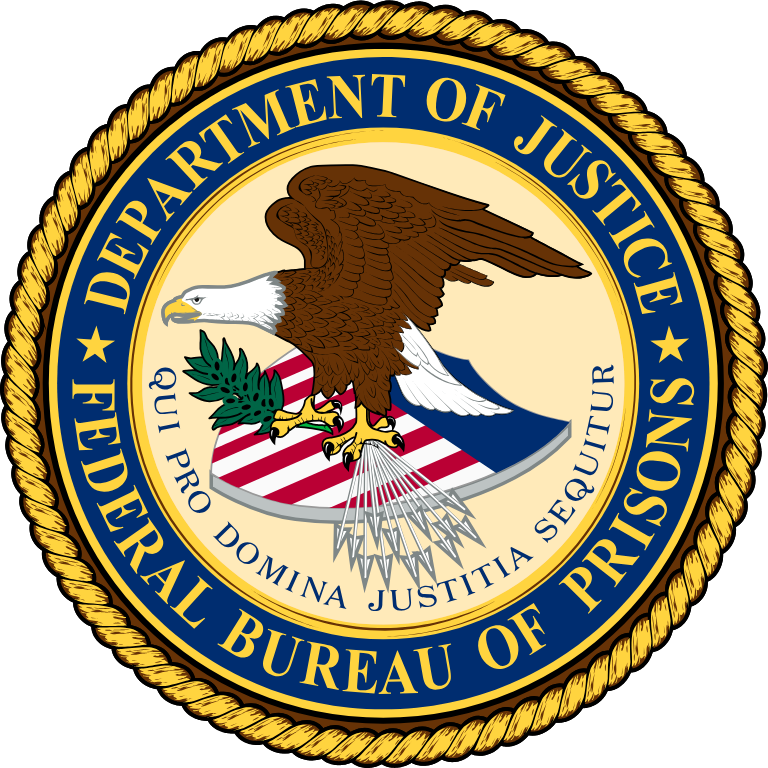By Dick LaFontaine, Rick LaRivière, and Richard Luthmann
Federal prisoners are increasingly frustrated with the Bureau of Prisons (BOP) due to the agency’s failure to correctly count earned time credits under the First Step Act (FSA). The issue has escalated in recent months, with inmates staging food strikes and other protests, demanding answers about when they will be released.
As tensions rise, prisoners feel that the BOP's mismanagement is keeping them behind bars longer than necessary, with little to no recourse.
In July 2024, BOP Director Colette Peters testified before the House Judiciary Subcommittee on Crime and Federal Government Surveillance, acknowledging that the BOP's "forward-looking calculator" for FSA credits was not fully operational. Now that it is, confusion reigns among the prison population.
The system, designed to calculate time off for prisoners who participate in programs, has become a source of anger rather than relief. Many inmates claim they should already be home, but BOP staff are either unclear or unresponsive about their release dates.
"The First Step Act was supposed to give us hope, but instead, it’s become another source of stress," said Donovan Davis, a prisoner at FPC Montgomery in Alabama. "I should be out now, but nobody is giving me answers."
The First Step Act: A Landmark Reform Signed by Trump
The First Step Act, signed into law by President Donald Trump in December 2018, was the first significant overhaul of the U.S. criminal justice system in over a decade. The bipartisan legislation aimed to provide prisoners with a second chance by reducing recidivism, allowing for fairer sentencing, and easing the transition from incarceration back into society.
Trump’s focus on prison reform made him the most pro-prisoner president in recent American history, particularly for the incarcerated and their families. When signing the bill, Trump stated, "Americans from across the political spectrum can unite around prison reform legislation that will reduce crime while giving our fellow citizens a chance at redemption."
The law gave many inmates hope for an early release by earning good time credits and provided opportunities for rehabilitation through drug treatment and education programs.
Under the First Step Act, inmates could earn up to 15 days off their sentences each month for participating in rehabilitative programs. The law opened the door to early release or home confinement for those incarcerated for non-violent offenses.
By March 2019, over 16,000 inmates had enrolled in BOP-offered drug treatment programs, with many inmates receiving sentence reductions and the opportunity to return home earlier than expected.
The act also authorized low-risk and elderly prisoners to be transferred to home confinement when possible.
Despite these initiatives, the BOP’s failure to implement the law effectively has left thousands of prisoners in limbo, sparking the protests seen today.
Miscommunication Leads to Protests
FPC Montgomery, a minimum-security prison located on a military base, has become a hotspot for unrest. Last week, prisoners lined up outside case managers' offices, desperate to get clarification on their release dates.
When many were told to leave without answers, tensions boiled over. Inmates began refusing meals, staying outside their units all day, and pulling fire alarms, causing the local fire department to respond multiple times.
Family members expressed growing concern over the situation, with some fearing it could escalate further.
"This is all about the BOP not giving us answers to things we know about from reading the First Step Act law," Davis explained.
The FSA allows prisoners who participate in specific programs, including work and religious services, to earn up to 15 days off their sentence each month. Once they’ve earned a year’s worth of credits, any additional time earned can be applied toward home confinement.
For inmates with long sentences, these credits could significantly reduce their time behind bars, potentially allowing them to serve part of their sentence from home. But that promise is far from being fulfilled.
"The BOP is holding people longer than they should because they are failing to account for credits properly," said Philip Kenner, a prisoner at the federal lockup in Englewood, Colorado. "It feels like we’re being punished twice."
Bureaucratic Failures
The disconnect between the BOP’s internal systems and the staff responsible for applying the FSA credits is at the heart of the confusion. The BOP introduced two new terms to reflect inmate release dates: the Projected Release Date and the Conditional Release Date. The Projected Release Date includes the FSA credits awarded up to the current point.
In contrast, the Conditional Release Date includes credits the inmate will likely earn for the remainder of their sentence. But case managers and BOP staff are reportedly misapplying these dates, leading to prolonged incarceration for many inmates.
"The case managers don’t even know which date to use. They keep us locked up longer than they should," Kenner said.
According to BOP officials, part of the problem stems from a shortage of space in halfway houses, the primary means of monitoring those on home confinement. This has forced the BOP to keep inmates in prison longer despite them being eligible for home confinement months earlier.
Director Peters admitted in her July testimony that the shortage of halfway houses was approaching crisis levels.
"We are aware that some individuals may be staying in prison longer than intended, but we’re facing capacity issues," Peters said.
Consequences for Staff and Public Safety
As tensions mount inside federal prisons, the consequences extend beyond the inmate population. Some fear that the growing unrest could lead to violence, putting BOP staff at risk. The strain on correctional officers, who are already dealing with overcrowded facilities and staff shortages, has led to a dangerous environment. Some believe it’s only a matter of time before the situation spirals out of control.
"BOP officials are playing with fire," said a law enforcement union source. "If this continues, it’s not going to end well. Someone is going to get hurt."
Many are pointing the finger directly at Director Peters and the Biden-Harris Administration, accusing them of failing to address the systemic issues within the BOP.
The mismanagement of FSA credits, coupled with the growing sexual assault crisis within federal prisons, has left some questioning the competency of the current administration.
"This is an agency that can’t even count days correctly, and we expect them to handle a crisis like sexual assault in prisons?" asked one former BOP employee. "It’s laughable if it weren’t so tragic."
A Call for Reform
The problems with the First Step Act and the BOP’s handling of inmate credits are just one facet of a more significant crisis facing federal prisons. Reports of widespread sexual assault in America’s federal prison system have prompted bipartisan inquiries, with Senators Marsha Blackburn (R-Tenn.) and Jon Ossoff (D-Ga.) leading the charge.
Their investigation revealed that 40% of BOP staff had experienced sexual harassment from inmates, yet the system has failed to address these complaints adequately.
Some have called for more drastic reforms, including the introduction of conjugal visits to reduce the likelihood of sexual violence within prisons.
"If we’re serious about addressing the rape crisis in our prisons, we need to consider options like conjugal visits," said a criminal justice reform advocate. "Otherwise, the ‘rape rooms’ will continue, and the blood will be on the hands of people like Colette Peters."
As violence becomes inevitable, many are left asking: How much longer can this broken system last? The BOP’s inability to handle something as basic as counting FSA credits only reinforces the belief that they are ill-equipped to manage the far deeper issues plaguing America’s prison system.
"When the violence happens, it’s going to be on them—Peters, the administration, all of them," the advocate warned. "This is a disaster waiting to happen."
























Share this post